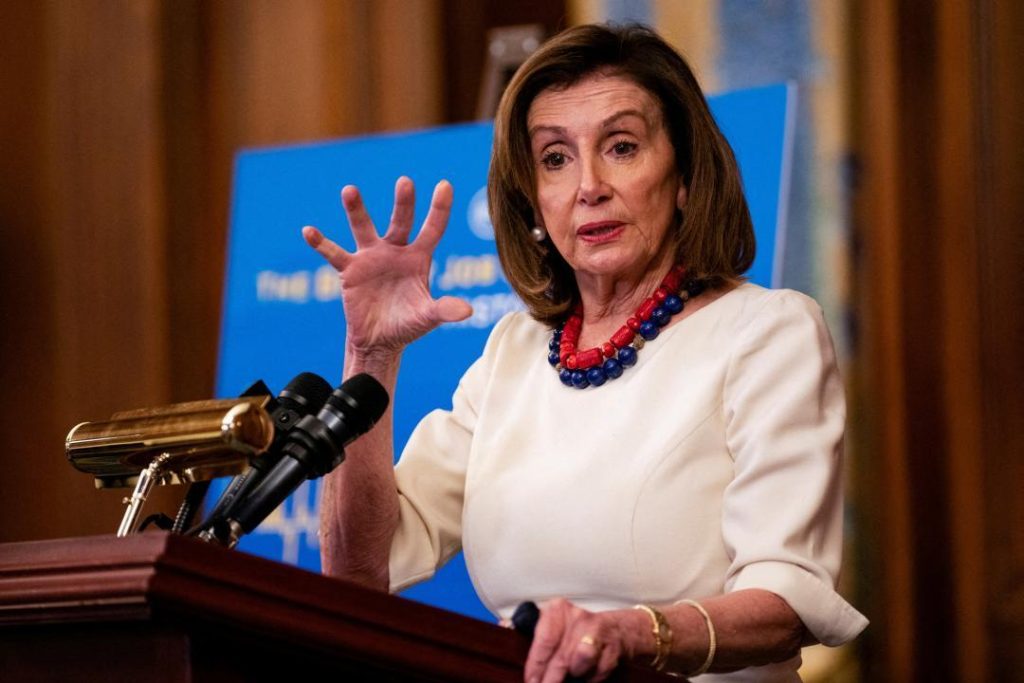
What is the PELOSI Act & why is it named after former US Speaker Nancy Pelosi?
In the United States, lawmakers have long been accused of using their positions to enrich themselves through insider trading and other unethical means. To address this issue, US Senator Josh Hawley has reintroduced the Preventing Elected Leaders from Owning Securities and Investments (PELOSI) Act, which aims to prohibit lawmakers and their spouses from holding or dealing in stocks while holding office. But what exactly is the PELOSI Act, and why is it named after former US Speaker Nancy Pelosi? In this blog post, we’ll delve into the details of this proposed legislation and explore its significance in the context of congressional ethics.
Background
The PELOSI Act is named after Nancy Pelosi, the former Speaker of the US House of Representatives, who has been accused of enjoying significant stock market gains during her term in office. In 2020, Pelosi’s family reportedly sold millions of dollars’ worth of stocks in companies that stood to benefit from the COVID-19 pandemic, leading to accusations of insider trading. The controversy surrounding Pelosi’s stock dealings sparked a national conversation about the need for greater transparency and accountability in congressional finances.
Key Provisions
The PELOSI Act would prohibit lawmakers and their spouses from holding or dealing in individual stocks, bonds, or other securities while holding office. However, lawmakers would still be allowed to invest in mutual funds (MFs), exchange-traded funds (ETFs), and Treasury bonds. This means that lawmakers would still be able to invest in the stock market, but they would not be able to benefit from insider information or use their positions to manipulate stock prices.
Under the proposed legislation, lawmakers would be required to divest themselves of any individual stocks or securities within 30 days of taking office. They would also be required to disclose their financial holdings and any transactions they make within a certain timeframe.
Rationale
Proponents of the PELOSI Act argue that it is essential to ensure the integrity of the legislative process and to prevent lawmakers from using their positions to enrich themselves at the expense of the public. By prohibiting lawmakers from holding or dealing in individual stocks, the act aims to prevent conflicts of interest and to promote transparency and accountability in congressional finances.
Critics of the PELOSI Act argue that it is an overreach of government power and that it would unfairly restrict the ability of lawmakers to invest in the stock market. They also argue that the act would not address the root causes of corruption in Congress and would instead create more bureaucracy and red tape.
Impact
The PELOSI Act has the potential to have a significant impact on the way lawmakers do business in Washington. By prohibiting lawmakers from holding or dealing in individual stocks, the act would help to prevent conflicts of interest and to promote transparency and accountability in congressional finances.
However, the act would also have significant implications for the stock market and the broader economy. By restricting the ability of lawmakers to invest in individual stocks, the act could potentially reduce the amount of capital available for investment and could also create uncertainty and volatility in the market.
Conclusion
The PELOSI Act is a proposed piece of legislation that aims to address the issue of congressional corruption by prohibiting lawmakers and their spouses from holding or dealing in individual stocks while holding office. The act is named after former US Speaker Nancy Pelosi, who has been accused of enjoying significant stock market gains during her term in office.
While the act has its supporters and detractors, it is clear that it has the potential to have a significant impact on the way lawmakers do business in Washington. By promoting transparency and accountability in congressional finances, the PELOSI Act could help to restore trust in government and to promote a more ethical and accountable legislative process.
Source:






